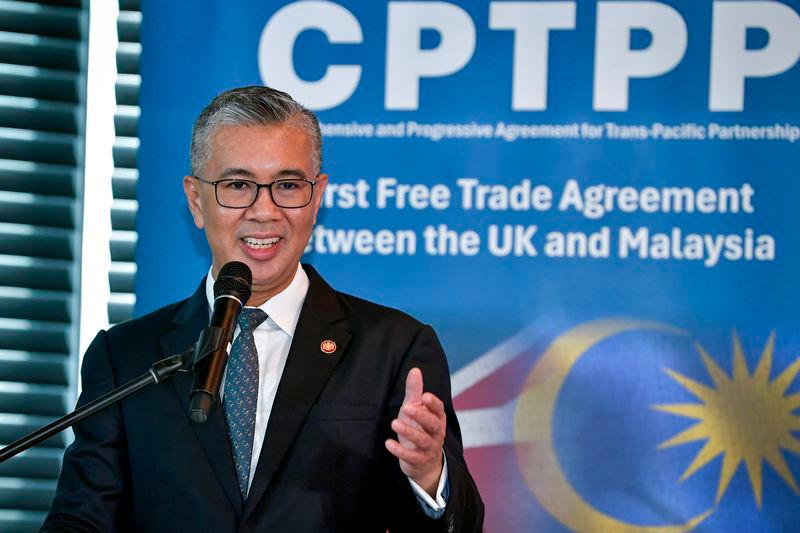KUALA LUMPUR: The Malaysia-United Arab Emirates (UAE) Comprehensive Economic Partnership Agreement (MY-UAE CEPA) is expected to boost total bilateral trade between the two countries by at least 60 per cent in five years, contributing to a more sustainable economic growth.
Investment, Trade and Industry Minister Tengku Datuk Seri Zafrul Abdul Aziz said the CEPA is also expected to pave the way for strong comprehensive economic cooperation through trade facilitation as well as market access expansion between Malaysia and the UAE.
The UAE is a major trade hub for the Middle East and North Africa (MENA) market.
“The successful signing of the MY-UAE CEPA in Abu Dhabi on Jan 14, 2025, marks a significant achievement for both countries, as this is the first free trade agreement between Malaysia and a West Asian country,” Tengku Zafrul said in a statement.
Tengku Zafrul also took the opportunity to hold a bilateral meeting with UAE Minister of State for Foreign Trade, Dr Thani bin Ahmed Al Zeyoudi, to discuss various issues, including the implementation of the CEPA and potential trade and investment in areas of mutual interest.
The two ministers also discussed expectations from the ASEAN-Gulf Cooperation Council (GCC)-China Summit, which will be held in May 2025 during Malaysia’s ASEAN 2025 chairmanship.
“The negotiation period for the CEPA which only took 11 months reflects the commitment of both Malaysia and the UAE to strengthen their economic cooperation for mutual benefit.
“The signing of the CEPA is set to position Malaysia as a dynamic trade and investment hub, opening new opportunities for Malaysian businesses and creating high-value jobs, as well as making Malaysia a gateway for UAE businesses to the ASEAN market,” Tengku Zafrul said.
The Investment, Trade and Industry Ministry (MITI), through its agency the Malaysian Investment Development Authority (MIDA), also organised meetings between Prime Minister Datuk Seri Anwar Ibrahim and sovereign wealth funds from Abu Dhabi, including the Abu Dhabi Investment Authority (ADIA), Mubadala Investment Company, as well as the UAE’s leading renewable energy company MASDAR.
MITI said potential key sectors for deeper collaboration with these sovereign wealth funds include renewable energy, artificial intelligence, and the semiconductor industry.
The ministry also welcomed ADIA’s interest to collaborate with Global Infrastructure Partners in the Malaysia Airport Holdings Bhd transformation exercise.
Moreover, Malaysia and the UAE have signed a memorandum of understanding on investment cooperation in data centre projects.
Cooperation in these sectors is expected to add value to Malaysia’s economic development and harness Emirati expertise and capital, MITI said.
The UAE was Malaysia’s second-largest trading partner in the West Asian region in 2023, after Saudi Arabia.
It is also Malaysia’s second-largest export destination after Turkiye and the second-largest source of imports after Saudi Arabia among countries in the West Asian region.
In the first 11 months of 2024, bilateral trade between Malaysia and the UAE amounted to RM39.53 billion, an increase of 8.6 per cent year-on-year.
This relationship reflects the UAE’s strategic importance as a key economic partner for Malaysia in the region.
In terms of foreign investments, the UAE is one of the biggest investors in Malaysia among the GCC member countries.
As of September 2024, 35 manufacturing projects valued at RM1.51 billion have been implemented by investors from the UAE.
These investments have created 2,187 job opportunities, contributing to the economic development and growth of the country’s manufacturing sector, MITI said.









